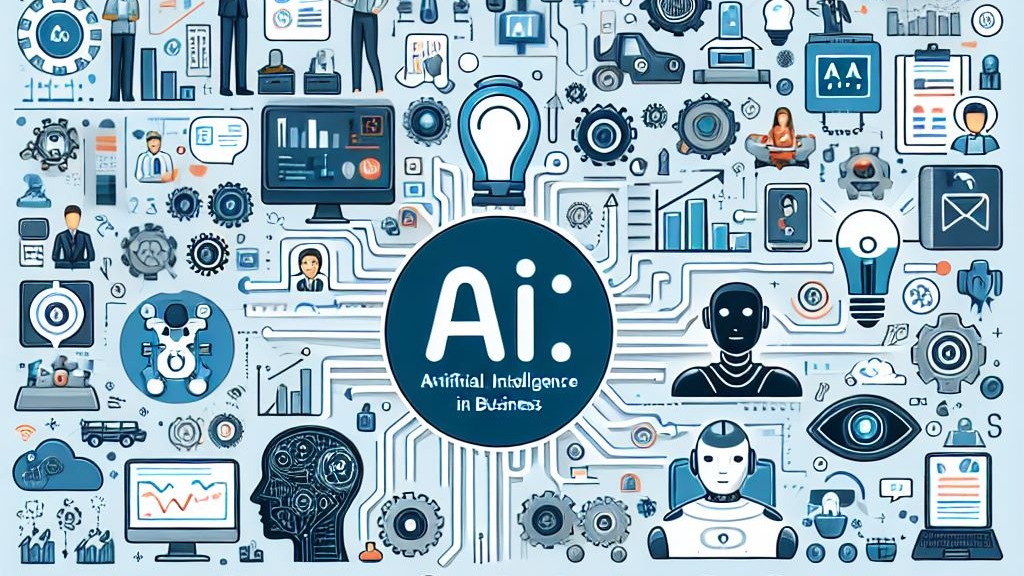Artificial Intelligence (AI) is revolutionizing businesses across various industries, offering unprecedented opportunities for growth, innovation, and efficiency. However, its integration into business operations also presents several challenges that organizations must address. This article explores the role of AI in business, its benefits, challenges, and strategies for successful adoption.
Benefits of AI in Business
AI has the potential to transform businesses by:
- Automating repetitive tasks – AI-powered systems can handle routine tasks, allowing human resources to focus on strategic and creative work.
- Enhancing decision-making – AI-driven analytics provide valuable insights, enabling businesses to make informed decisions and stay competitive.
- Improving customer experiences – AI-powered chatbots and virtual assistants offer personalized customer support, enhancing satisfaction and loyalty.
- Increasing efficiency – AI optimizes business processes, reducing costs and improving productivity.
Opportunities for AI Adoption in Business
AI can be applied in various business functions, including:
- Marketing and Sales – Personalizing marketing campaigns, predicting customer behavior, and optimizing sales strategies.
- Customer Service – AI chatbots and virtual assistants provide 24/7 support, improving response times and customer satisfaction.
- Finance and Accounting – Automating financial tasks such as invoicing, reconciliations, and compliance reporting.
- Supply Chain Management – Optimizing operations by predicting demand, managing inventory, and streamlining logistics.
Challenges of AI Adoption in Business
Despite its advantages, AI adoption presents several challenges, including:
- Data Quality and Integration – AI relies on high-quality, integrated data, which can be difficult for businesses with disparate systems.
- Cybersecurity Risks – AI systems can be vulnerable to cyber-attacks, compromising sensitive business data and operations.
- Regulatory Compliance – Businesses must ensure AI systems comply with regulations such as GDPR and CCPA.
- Talent Acquisition and Training – Recruiting and training AI-skilled professionals is challenging in a competitive job market.
Overcoming the Challenges of AI Adoption
To successfully integrate AI, businesses should:
- Develop a Clear AI Strategy – Align AI adoption with business objectives and address potential challenges.
- Invest in Data Quality and Integration – Ensure data systems are integrated and of high quality to support AI functionality.
- Implement Robust Cybersecurity Measures – Protect AI systems with security measures such as encryption and access controls.
- Develop Talent and Skills – Invest in AI training and talent acquisition to build expertise within the organization.
Conclusion
AI is transforming businesses across industries, offering opportunities for growth, innovation, and efficiency. However, its adoption also presents challenges that must be addressed. By understanding these benefits and challenges, businesses can develop effective strategies for integrating AI and achieving long-term success.
Recommendations for AI Implementation
- Start Small – Begin with small-scale AI pilot projects to test the technology and gain expertise.
- Collaborate with AI Experts – Partner with AI consultants to develop a clear strategy and address challenges.
- Invest in Employee Training – Provide AI training to employees to ensure they have the necessary skills.
- Monitor and Evaluate AI Performance – Continuously track AI implementation to align with business objectives.
- Stay Updated with AI Trends – Keep up with the latest AI advancements to maintain a competitive edge.








